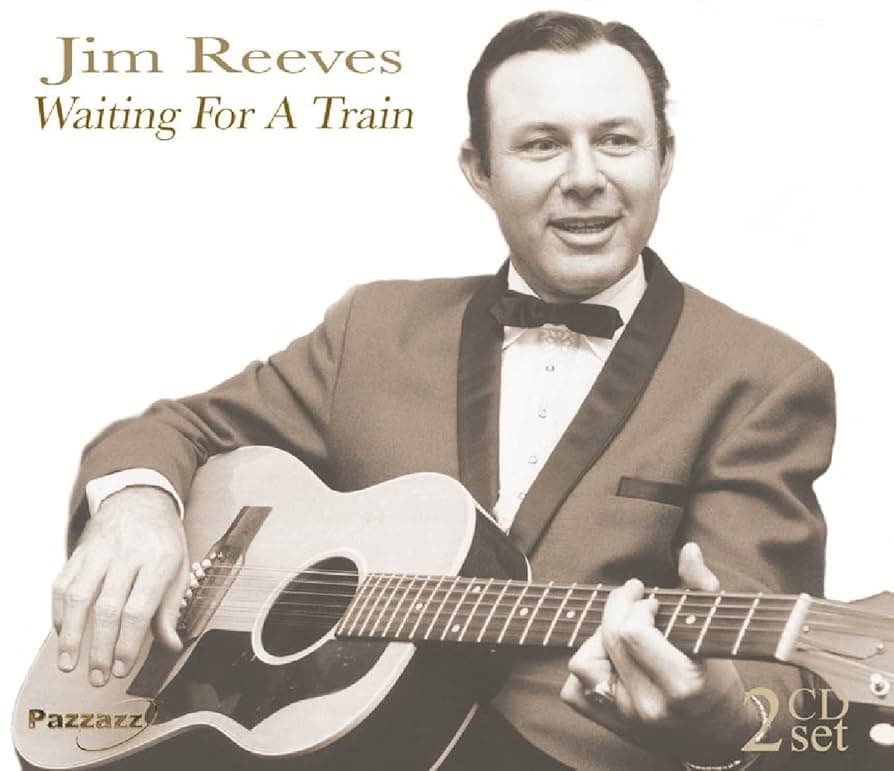
The Velvet Voice Rides the Rails: An Ode to the Original Rambler
The year was 1956, and the “Nashville Sound” was beginning its polished ascent. In the midst of this transformation stood Jim Reeves, the “Gentleman Jim” whose velvety baritone and smooth, orchestrated arrangements were charting a new course for country music—one that embraced both elegance and deep, heartfelt emotion. It was within this context that Reeves recorded his rendition of “Waiting for a Train,” a song that managed to bridge the historical divide between the earliest, rawest forms of American music and the sophisticated sound of modern country.
This song, recorded on November 13, 1956, and released by RCA Victor, was not an original, but a tribute to the undisputed father of country music. The song’s lineage stretches back to Jimmie Rodgers, “The Singing Brakeman,” who first recorded it in 1928, making it one of the foundation stones of the entire genre. Rodgers’ original, famously paired with “Blue Yodel No. 4,” was a colossal hit in 1929, perfectly capturing the theme of the wandering hobo—a figure whose struggles became all too real for millions during the ensuing Great Depression. Jim Reeves’ decision to cover such a seminal piece showed a deep respect for his roots, yet his execution transformed the rough-hewn travelogue into a smooth, late-night reflection.
While Reeves’ version was not a major pop crossover hit like some of his later work, its inclusion as the B-side to his minor country hit “Am I Losing You?” and its enduring presence on the album Singing Down the Lane ensured its legacy. It became a staple in his repertoire and a beloved album track, particularly overseas where Reeves’ popularity was astronomical. The original 45 RPM single on which it appeared (RCA Victor 47-6749) spent five weeks on the Billboard country chart in 1956, securing its status as a notable recording.
The meaning of “Waiting for a Train” is a poignant look at solitude and resilience. The lyrics tell the story of a man—a thousand miles from home, sleeping in the rain—who is rejected by a brakeman for being penniless: “Get off, get off, you railroad bum,” the brakeman orders. The protagonist is left stranded in the vast, wide-open spaces of Texas, heartbroken and alone, yet still determined to find his way home to “Dixieland.” It’s a tale of simple, honest hardship and the enduring hope of the common man.
What makes Jim Reeves’ recording so memorable for those of us who cherish his era is how he stripped away Rodgers’ characteristic yodeling and raw blues inflection, replacing it with the restrained, rich warmth of his own voice. Accompanied by the crème de la crème of Nashville session players, including Chet Atkins on electric guitar and Floyd Cramer on piano, Reeves turned the classic hobo lament into a sophisticated, almost cinematic piece of music. It is a recording that lets the melancholy settle deep, offering a powerful, nostalgic glimpse back at the difficult, yet romanticized, life on the rails—a classic story told with the unforgettable grace of the “Gentleman Jim.”